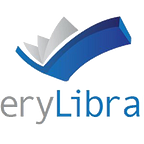The Edible Alphabet
For some people learning a new language, the kitchen is a non-threatening, comfortable place to approach learning.
Libraries have a vested interest in promoting literacy and language skills. Many librarians out there go well above and beyond to find ways to engage their communities and deliver those skills. Case in point: The Free Library of Philadelphia’s Edible Alphabet program.
The Edible Alphabet is an English Language Learning (ELL) program offered to people for whom English is not their native language. While ELL programs are fairly standard across the country, the Edible Alphabet takes a different approach: The program (in non-pandemic times, anyway) takes place in a kitchen, where participants prepare and eat new recipes, while working on their English skills both for following the recipe and for socializing with each other.
“This is contextual and project-based learning and focuses on cooking and the library,” said Lindsay Southworth, the library’s program manager for adult language learning. “There are 6-week and 8-week programs, meeting either once or twice a week. Everyone cooks a recipe while working on their food vocabulary, equipment vocabulary, verbs, conversational exercises, writing, all embedded into the cooking classroom.” That means they’re learning the basics of English, but also the useful aspects of English words for dishes and ingredients, how to read recipes, even which stores locally have those ingredients.
Learning language to communicate in a kitchen setting, while actually cooking something they might cook at home, helps keep the students interested and motivated. Which is not to say traditional ELL programs don’t have a role: “We’ve done some more traditional ESL learning too, such as grocery store role plays. But usually we’re working in small groups to make, for example, samosas. Participants are learning the vocabulary to decipher and use the recipe.”
She noted that the kitchen program helps not only with reading and writing English, but with speaking. “The oral part is so important because we’ll have participants who are great English students when it comes to reading and writing, but struggle with speaking.”
For other students, the kitchen is a non-threatening, comfortable place to approach learning, as opposed to a classroom that can seem more intimidating. “For many, the kitchen is a place of comfort and competency,” Southworth said. “It’s a more democratic teaching approach, a more egalitarian classroom.”
Does it work? Assessments done at the end of each session show it does. The 6-week program alone increases vocabulary about 20%. But that’s not the only learning being taught in the Edible Alphabet; participants also learn about the library and all the services it offers — for free — which many students were unaware of. The same assessments that found increased vocabulary also demonstrated that library knowledge and use increased 110%.
While English is the primary program, Southworth has also piloted (pre-pandemic) a program to teach Spanish this way. She brought in a chef knowledgeable in Peruvian cuisine, where students learned not just about the recipe, but about Peruvian history and culture, all while sharpening their Spanish skills.
The pandemic slowed — but didn’t stop — the Edible Alphabet program. English classes moved to Zoom and were enthusiastically embraced. “We’ve found that our learners are very enthusiastic to show up on Zoom,” Southworth said. “Many are isolated at home with their families, who aren’t speaking English. This Zoom is a lifeline to continue learning and practicing their English.”
